Addiction
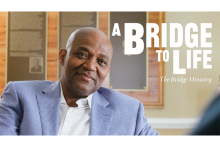
More Than Sobriety
The documentary A Bridge to Life profiles a residential program in rural Virginia for men overcoming addiction; founder and pastor William Washington believes environment is key to sobriety. By centering structure, job training, and hope, the program boasts a 5% recidivism rate. PBS

My doctor's reaction to my disorder was rare. When he noticed that my prescriptions were running out faster than they should, he did not shame, blame, or accuse me of any grave moral failing. With kindness and compassion, he noted that I had developed an addiction and immediately assured me that I had done nothing wrong.

Opioid use disorder (OUD) is a disease, not a moral failing.

In the United States, we count drug overdoses per 100,000, not per million. The comparable numbers are 6 per million in Portugal, 21.3 per million for the European Union, and 217 per million in the United States.

Good Friday and Easter Sunday are not just moments of remembering events of 2,000 years ago but a celebration of an ongoing reality. Examples of resurrection come in unlikely places. Recently, I found one in a 2013 study of brain scans or people recovering from severe addictions.
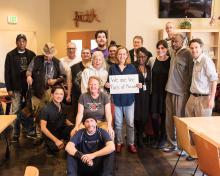
When Kathy Killian Noe arrived in Seattle in 1999, she already had a lifetime of experience as a passionate advocate for the forgotten and the despised. She studied her new city with a simple question in mind: Where was the deepest need? She saw thousands of people struggling with mental illness and substance use disorders. She dreamed of finding a way to offer something those people were missing—something that might be called the advantages of family.
For lucky people, family means a reliable network of human beings who will never abandon you, who are always ready to give you the benefit of the doubt, whose love is reliable as rain. Family is the solace of being known and cherished. It’s having someone call you to check in, or bake you a cake, or just be happy to see you. It’s having people who need you. Some of us are born into families like this, and some of us find them in loving faith communities that create families of choice.
Noe faced a whole population suffering from the lack of that kind of support—people who often didn’t even know what it feels like to be cared for over the long haul in a thousand small but crucial ways. “Nine out of 10 Recovery Café members have experienced childhood trauma,” Noe said, “and many have suffered one trauma after another.” That these people also suffered from a variety of addictions and other mental health challenges only made their isolation more heartbreaking.
The most important ingredient in any meal is love. If one chooses the food, prepares the food, and presents the food with love, there will always be spiritual nourishment baked in along with the calories and flavors. And so, with the support of a small group of friends and New Creation Community—an ecumenical faith community in the tradition of Washington, D.C.’s Church of the Saviour—Noe set out to find a way to fill the need for that kind of nourishment. The result was Recovery Café.

In June, Bishop Ed Malesic of Greensburg, Pa., released “A Pastoral Letter on the Drug Abuse Crisis: From Death and Despair to Life and Hope.” In it he outlined several “first steps” that parishes could take in response to the region’s opioid epidemic.

In the wake of the Charlottesville, Va., white nationalist race riot, several writers have reached for the metaphor of addiction to help characterize the gravity of what America is facing and the grip it has on us. It's easy enough to understand why one would choose this particular comparison, especially when you take time to explore how compulsive behaviors affect the individuals engaged in them, their families and friends, and even their brains. The outcomes over time are devastating.

Author and reporter Maia Szalavitz says America is long overdue for new thinking on addiction, "both because our understanding of the neuroscience underlying addiction has changed and because so many existing treatments simply don’t work.” Our friends at Juvenile Justice Information Exchange sat down with Szalavitz to discuss her new book on the topic, Unbroken Brain: A Revolutionary New Way of Understanding Addiction. The following has been edited for length.

Naming it “corrosive” and a “dark” sign of contemporary American culture, the U.S. Catholic bishops approved a document this week condemning the production and use of pornography as a mortal sin.
Reaction from the bishops’ critics didn’t take long. Some said the bishops themselves have very serious problems with pornography; others pointed out the not-so-distant sex abuse crisis. The upshot was that the bishops ought to have different priorities.
One could be forgiven for confusing this disagreement with one from the 1980s. Didn’t it play out over a generation ago — with the result that our culture basically accepts porn as part of sexual liberation?
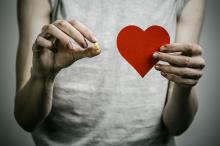
"Would you give an addict a clean needle, so they could stay alive until they found freedom from their addiction? Would you give a prostituted woman condoms, so she could protect herself until she found freedom from prostitution?"
Clearly, the famous evangelical leader I was speaking with in Cambodia didn't think we should be helping people in this way. He was adamant that Jesus would never give out condoms or clean needles. He insisted that the little clinic we were running in a Phnom Penh brothel was a waste of time and inconsistent with the gospel.

While I can make things happen, contribute to long-term movement, and rally folks around a vision, I can also overwork, form my identity around the things I do rather than who I am and, in the end, miss out on the sacredness of being present in the beautiful mundane of everyday.
This is an important realization (and a hard one!) and I’m having to do a little extra evaluation of it in my current season of life with nearly four kids, a non-profit, and a household that requires the attention of a Fortune 500 CEO.
I was recently on a walk to the park with my girls Ruby (4) and Rosie (2). While I was distractedly responding to an email on my “smart” phone, I looked over and noticed that Rosie had fallen behind and was bent over staring at the ground. As I circled back around to speed her up, I noticed that she was looking at a crack in the sidewalk admiring the little twig that was sprouting between the concrete slabs.
For her, she wasn’t at all concerned about arriving at a destination, but about being fully present along the way. In this tiny twig, Rosie found beauty and she wasn’t about to miss it.
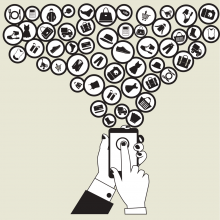
For Christians, it’s sometimes hard to admit believing in the supernatural, the legitimacy of miracles, an afterlife, and following an ancient text written thousands of years ago by numerous authors that have been divinely inspired by an all-knowing, all-powerful, and omnipresent God.
At first glance, Christianity seems at odds with an increasingly “secular” culture that views spirituality as old-fashioned and irrelevant, but our society reveals that everything — and everyone — is spiritual on some level.
At first glance, Christianity seems at odds with an increasingly “secular” culture that views spirituality as old-fashioned and irrelevant, but our society reveals that everything — and everyone — is spiritual on some level.
1. The Religion of Sport
Few people pray more fervently, earnestly, and passionately than when their favorite sports teams — and athletes — are competing.
With arms outstretched, they wildly clap, cheer, chant, cry, and scream at the top of their lungs. Wearing costumes, jerseys, and following

Apocalypse or snowstorm? For a nervous few days, we worried that life as we know it in New York would be undone by a monster blizzard.
As it turned out, we didn’t get the feared 36 inches. But as we stood in long grocery lines and planned escape routes from work, we realized that not a single one of us — not even the mega-wealthy and mega-powerful in this mega-city — could control this moment.
For me, a blizzard would have imperiled my scheduled move Upstate on Jan. 29 and my scheduled flight to California next week and ensuing four-week pilgrimage driving east on two-lane roads, plans made over many months.
Now we could see our “control addiction” in action. Some believe control is the ultimate human addiction. Not caused by a chemical or harmful substance, but caused by the grand delusion that we are all-powerful, we are “masters of the universe,” as Tom Wolfe put it. Our wealth and our weapons can make life exactly what we want.

“I AM A storyteller,” says Daniel Beaty, “and my purpose in the world is to inspire people to transform pain to power.”
He was first inspired to share his stories when his third-grade teacher showed a videotape of Martin Luther King Jr.’s “I Have a Dream” speech. Now as a writer, actor, singer, teacher, and motivational speaker, his storytelling is expressed in a dizzying array of different forms and outlets. The week in April that Sojourners’ editorial assistant Rebecca Kraybill interviewed him, Beaty was doing daily performances in Los Angeles of a one-person play he wrote on the life of performer and activist Paul Robeson, “The Tallest Tree in the Forest” (in which he plays 40 characters and sings 14 songs) and, during the day, taping for a Ford Foundation-funded documentary on work he does with children of incarcerated parents.
This was just a fortnight after Beaty finished a six-week speaking tour in support of his memoir, Transforming Pain to Power: Unlock Your Unlimited Potential (Penguin-Random House). He’s also the author of a children’s book released in December 2013 by Little, Brown and Company, Knock Knock: My Dad’s Dream for Me, with graphics by award-winning illustrator Bryan Collier, which is an adaptation of a poem Beaty wrote about his experience growing up with an incarcerated father. “Knock knock down the doors that I could not” is one especially poignant line the father in the book writes to the son; it carries a call to healing and liberation that is found in all of Beaty’s work.
Kraybill talked with Beaty about the effects of mass incarceration on families, the power of a “theater sanctuary,” and how the arts call us toward “the capacity to do better.”
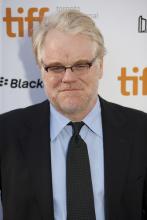
I almost gave up on my drug-addict mother. But then I discovered that God never gives up.
In memory of Dorothy Molex (my mom), Philip Seymour Hoffman, and the countless others who battle the demons of addiction.
“What are you arguing with them about?” he asked. A man in the crowd answered, “Teacher, I brought you my son, who is possessed by a spirit that has robbed him of speech. Whenever it seizes him, it throws him to the ground. He foams at the mouth, gnashes his teeth and be- comes rigid. I asked your disciples to drive out the spirit, but they could not.” (Mark 9:16-18)
I never thought the Bible had anything to say about addiction. It’s not something that I ever heard preached or read in the Bible. As someone who grew up in a household with an addicted parent, I wanted answers, but church didn’t provide them and the Bible appeared to be silent — until I decided to read this story through the lens of my life and personal experiences.

Alexander was having a terrible, horrible, no good, very bad day.
It's a children's story. I know. A no good, very bad day ... how do you prepare your kids for that kind of day where nothing seems to go right, where at every turn knobs break and we step in puddles and get gum stuck in our hair?
Maybe, we tell ourselves, that we can move to Australia and everything will be better.
Well, no. Terrible, horrible, no good, very bad days happen there, too. They happen everywhere. Everywhere. It's a great book.
So what do we do about them? The classic children's book doesn't answer the question for us. Not really. It's just a little bit of truth telling with fun illustrations. Some days are just terrible, horrible, no good, very bad days.
But as we grow older, we learn that though these days do simply happen, that there are attitudes one can have, there are approaches to these days one can take.
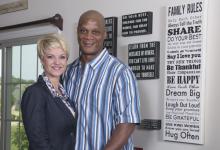
The four-bedroom, two-story modest house sits on a corner in this planned bedroom community, and when this 6-6 muscular-toned man welcomes you inside his home, there is no evidence Darryl Strawberry the player ever existed.
There are no pictures of Strawberry in a Mets uniform. No trophies. No plaques. None of his four World Series rings. Nothing from his eight All-Star Games. None of his 335 home run balls.
“I got rid of it all. I was never attached to none of that stuff,” says Strawberry, 51. “I don’t want it. It’s not part of my life anymore.”
Simple Truths
The Live Simply series, a set of four booklets based on the values of St. Francis of Assisi, is packed with practical, portable advice about ethical eating, holistic health, creation care, and sensible shopping. Ideal for anyone seeking a life of simplicity and satisfaction in a world of consumption. Franciscan Media
Lost and Found?
A decomposing body is found in the Sonoran Desert, with a tattoo, “Dayani Cristal.” The documentary Who is Dayani Cristal? shows the efforts to find out who this mysterious migrant was and the journey he likely followed. A haunting look at the people affected by the politics of immigration. www.whoisdayanicristal.com

“Be still and know that I am God.” - Psalm 46:10a
From April 29 to May 5 individuals, households, and communities will celebrate Screen-Free Week by disconnecting from their screens — TV, computers, games, mobile devices — during their free time and reconnecting with relatives, neighbors, the natural world, and the quiet voices that may be drowned out by the constant barrage of electronic noise. My neighborhood celebrated early so we could offer a variety of cost-free and screen-free family activities during the school's spring break week. I organized the celebration, as I've done for the last six years. It was satisfying to see kids slow down and engage in gardening, carpentry, music making, nature exploration …
I also observed Screen-Free Week myself. Seven days of fasting from electronic media showed me how much time I spend using then mindlessly and forced me to confront my idolatries that are fed or masked by this mindless use. I'm using Michael Schut's definition of idolatry:
"An idol is anything we put before God, a partial truth mistaken for the whole Truth, a lesser good elevated to the ultimate good. … Idols [promise] what they cannot deliver."